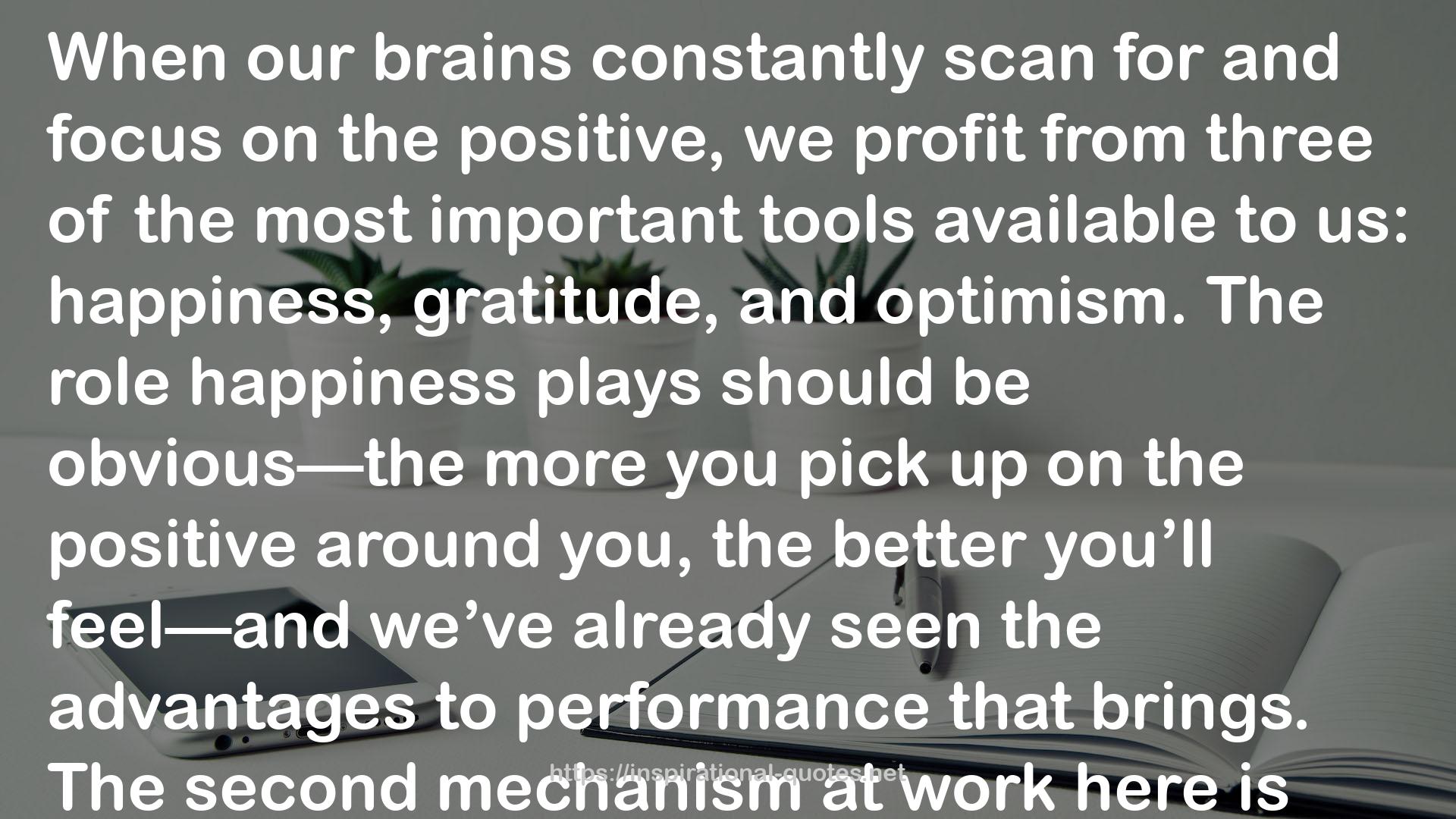" When our brains constantly scan for and focus on the positive, we profit from three of the most important tools available to us: happiness, gratitude, and optimism. The role happiness plays should be obvious—the more you pick up on the positive around you, the better you’ll feel—and we’ve already seen the advantages to performance that brings. The second mechanism at work here is gratitude, because the more opportunities for positivity we see, the more grateful we become. Psychologist Robert Emmons, who has spent nearly his entire career studying gratitude, has found that few things in life are as integral to our well-being.11 Countless other studies have shown that consistently grateful people are more energetic, emotionally intelligent, forgiving, and less likely to be depressed, anxious, or lonely. And it’s not that people are only grateful because they are happier, either; gratitude has proven to be a significant cause of positive outcomes. When researchers pick random volunteers and train them to be more grateful over a period of a few weeks, they become happier and more optimistic, feel more socially connected, enjoy better quality sleep, and even experience fewer headaches than control groups. "
― Shawn Achor , The Happiness Advantage: The Seven Principles of Positive Psychology That Fuel Success and Performance at Work
